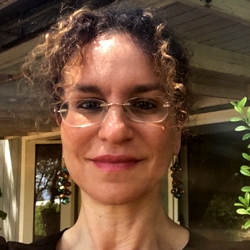
NVC Resources on Judgment
-
Ingrid shares about the three primary keys of parenting & NVC, two child rearing models, developmental needs for children and how to foster secure attachment.
-
When was the last time you were in a situation with an overwhelming feeling of shame or an unnerving fear of 'doing it wrong'? Sometimes we get sweaty palms or a dry mouth, maybe we freeze on the spot or start an unhelpful internal monologue that makes the situation feel even worse. In this months NVC Life Hack Gesine takes a closer look at her own experience with shame and the fear of doing it wrong.
-
Trainer Tip: Many of us are afraid of our anger because we haven’t learned how to express it in a way that brings relief or that helps us meet our needs in the situation. Consider a different approach to anger, one that helps you fully express your anger and is more likely to help you meet your needs for relief, to be heard, or to be understood.
-
What's really going on underneath the surface when we bring or encounter blame, judgements, pain -- and thereby the inability to empathize, be present, attuned, or responsive? Why does this happen even if one or more people in a relationship dynamic is working hard at bringing in an NVC response? This article addresses these and more questions from the perspective of how our brains are affected in our relationships.
-
Aya Caspi delves into the impact of societal structures and parenting approaches on individuals, particularly the prevalence of extrinsic motivation rooted in fear of punishment, desire for rewards, and a sense of obligation. The emphasis is on how these dynamics contribute to collective trauma and affect brain development. Examples, such as Hitler's childhood and the adverse effects of the educational system, are used to illustrate the consequences of such practices. Aya advocates for systemic change in these structures and emphasizes the role of non-judgmental practices in potentially reducing adult depression. The discussion highlights the importance of empathy and challenges the traditional methods that may lead to emotional neglect and trauma, emphasizing the potential benefits of embracing non-judgmental approaches in parenting and societal frameworks.
-
Often patients need enough emotional space to reduce any inner stuckness in their situation. They need to do this before they can adequately absorb information or effectively take next steps. Empathy can help with this. Empathy requires an intention to connect non-judgmentally. This gets better with practice. Read on for examples of how a situation can play out with, and without, empathy. And the difference it makes in healthcare.
-
During this very moving session, you'll dive into Robert's exercises for supporting connection to your true self as opposed to your conditioned self.
-
Miki Kashtan hosts Living Room Radio Show on KPFA Radio 94.1FM in Berkeley, California, USA. Listen as she works with a mother who is experiencing a strained relationship with her recently married daughter after a verbal “attack” from the daughter. Miki guides the caller to connect with her feelings of fear and her needs for ease of connection, and to further connect with her daughter’s needs.
-
We each have the power to be the creator of our own inner experience, no matter what is going on externally. The moment you imply wrongness on others, you give power to them. In this excerpt, Aya Caspi shows that the more self-responsibility you take, the more freedom you will have.  
-
Building your body and mind awareness can help you better regulate/calm your emotions. Regular self-empathy will help you better regulate your emotions as well as increase your body and mind awareness. If you are not aware of amygdala activation (fight/flight/freeze response), you will react instead of responding with choice. Use this eight-step process to develop your self-empathy/regulation skills.











